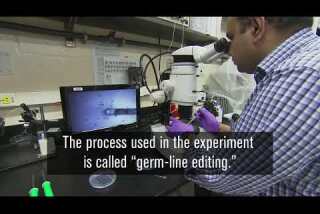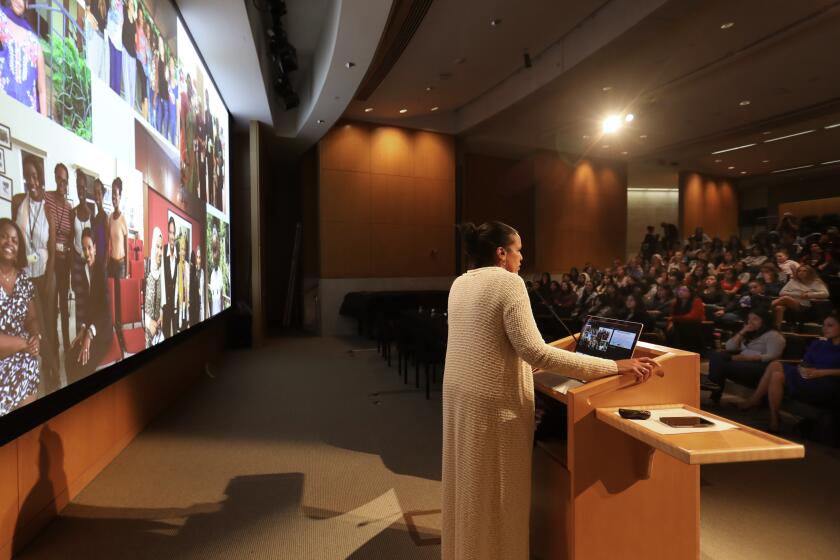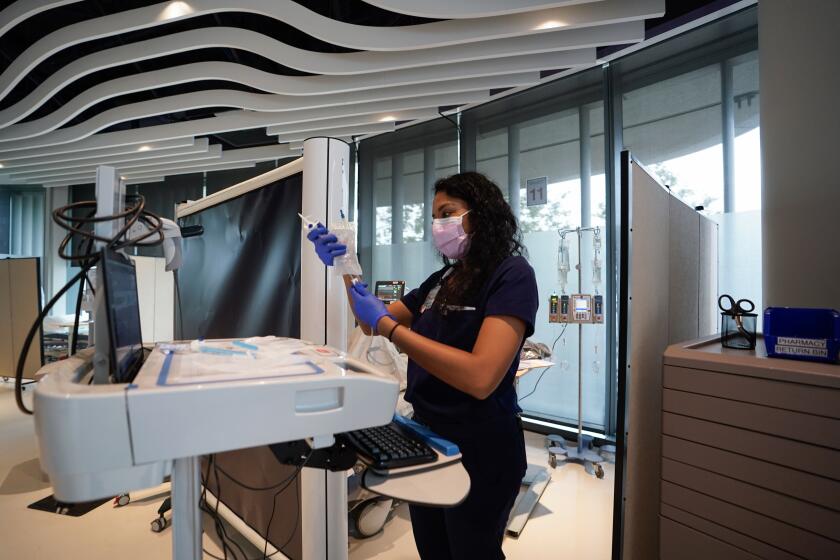After an epic research journey, an inexpensive, practical test for river blindness

A practical test for river blindness, a parasitic tropical disease that affects more than 18 million people, and puts 120 million at risk, has been developed by a Scripps Research scientist.
Unlike existing methods of detection, the dipstick urine test doesn’t require access to a laboratory or refrigeration, said chemist Kim Janda, who led the complicated research over more than a decade.
A study describing the test was published Friday in the journal ACS Infectious Diseases. It can be found at j.mp/jandatest.
“It’s one of the things on my bucket list,” said Janda, 61. “ I wish we could’ve done it quicker, but we had to learn a lot of things, and there wasn’t a lot known.”
Now that the research is done, it’s up to drug companies or health care nonprofits to get the test out where it’s needed, Janda said.
River blindness, or onchocerciasis, is found throughout much of sub-Saharan Africa, Yemen and parts of Brazil and Venezuela. The parasite is a small worm of the species Onchocerca volvulus. It is transmitted by the bites of female blackflies, found near rapidly flowing rivers and streams, according to the U.S. Centers for Disease Control and Prevention.
The worms spread through the skin and the eyes, causing itching. That’s especially dangerous in the eyes, which can become loaded with the worms, and develop open wounds that may lead to blindness.
River blindness is treatable with the drug ivermectin, which kills the young worms but not the adults, which reproduce prolifically. Ivermectin must be given annually until all the adult worms have died out naturally, which takes years. So repeated testing is needed to determine when the drug is no longer needed.
Janda and colleagues had to cross several hurdles, both scientific and practical, to make a usable test.
One hurdle was finding a biological marker that is only present when patients are infected by adult worms. Other biomarkers, such as antibodies, indicate whether people have ever been infected; not whether the infection is currently active.
Cost was another complicating factor: the test ideally should run 50 cents or less, Janda said. Finally, the test should be stable and portable, something that can be carried in a backpack when health care workers visit remote areas.
“It was just a lot of work,” Janda said. “We stuck through it.”
The work was funded by philanthropist John J. Moores, former chairman of the Scripps Research Board of Trustees and former majority owner of the San Diego Padres.
In 1989, Moores established the River Blindness Foundation to develop a treatment for that disease. In 1997, the foundation was absorbed into The Carter Center of Atlanta, of which Moores is trustee emeritus.
In 2005, Moores gave Scripps $4 million to set up the Worm Institute for Research and Medicine, which Janda heads.
Related reading
Philanthropist gives Scripps $2M for river blindness test
Findings Reveal a New and Much Needed Test for River Blindness InfectionCarter Center receives $10 million to fight river blindness
Science Playlist


In a first, scientists rid human embryos of a potentially fatal gene mutation by editing their DNA

10 interesting facts about Mars

Kids can add years to your life

LA 90: SpaceX launches recycled rocket

Ocean temperatures warming at rapid rate, study finds
bradley.fikes@sduniontribune.com
(619) 293-1020
Get U-T Business in your inbox on Mondays
Get ready for your week with the week’s top business stories from San Diego and California, in your inbox Monday mornings.
You may occasionally receive promotional content from the San Diego Union-Tribune.








